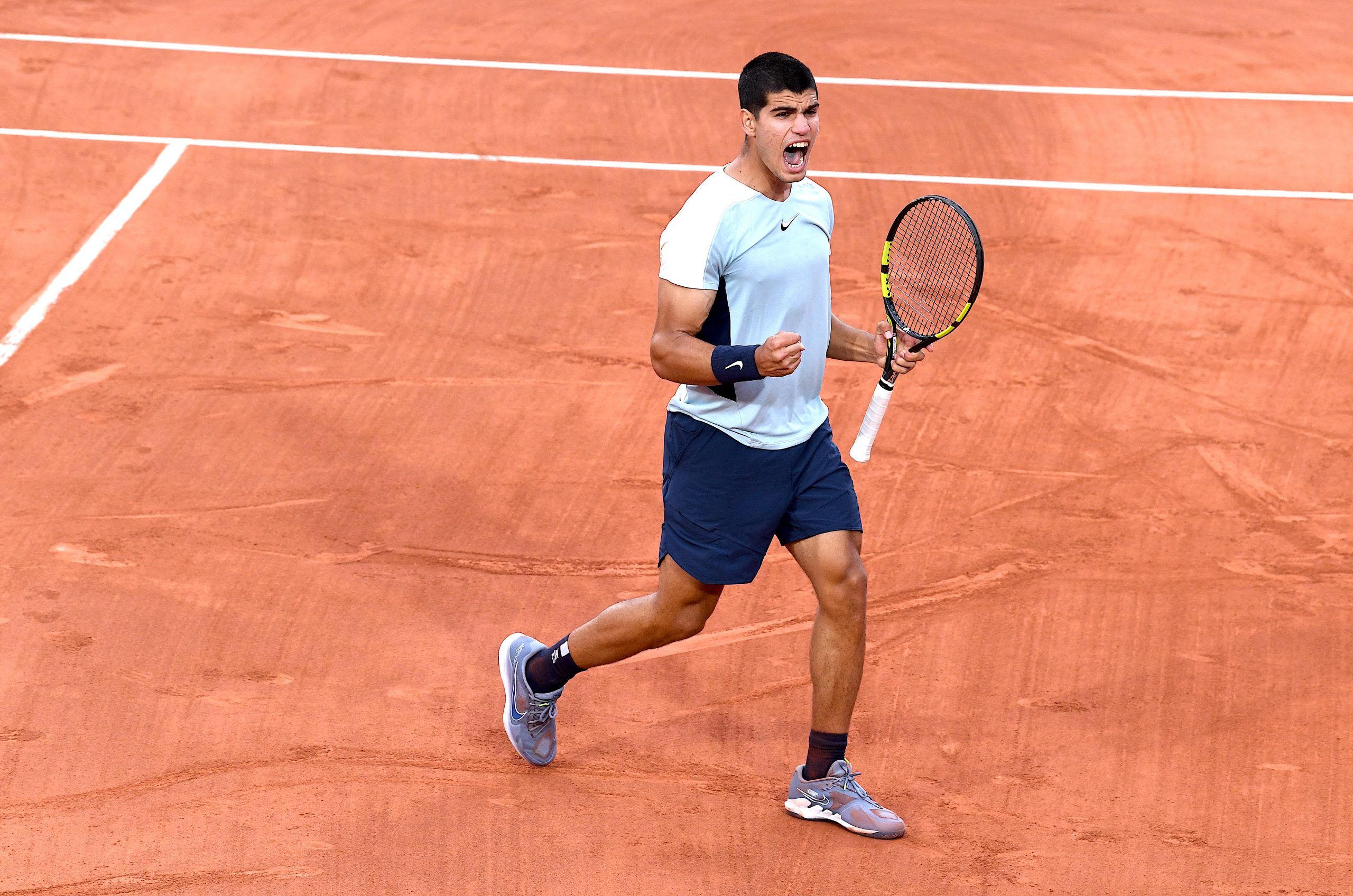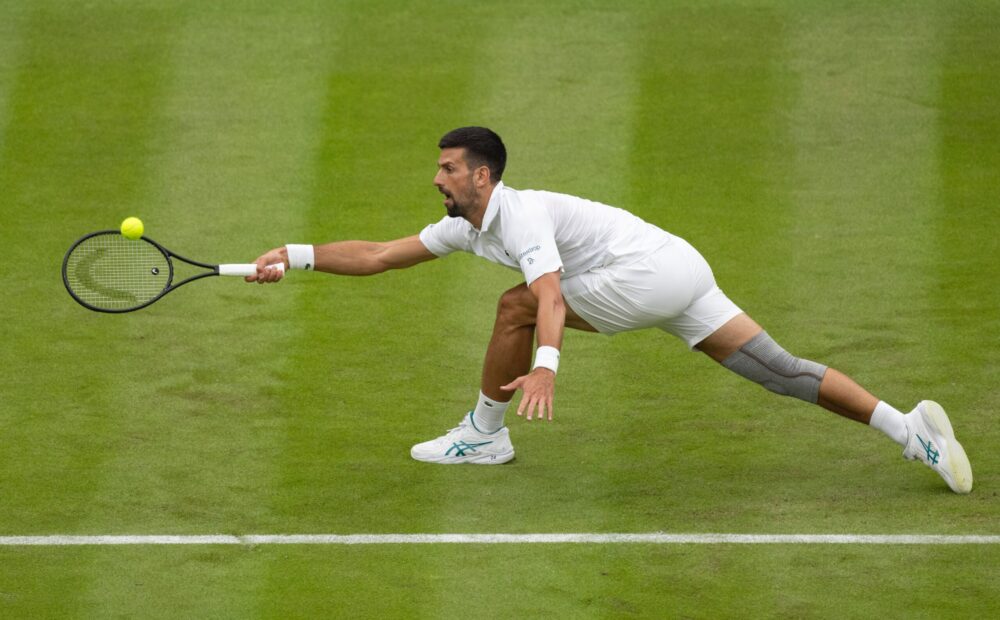by Kingsley Elliot Kaye
When Sebastian Korda stunned Carlos Alcaraz in the first round of the Montecarlo Open, just six weeks ago, the Spaniard’s rise was even hinted to have come to a slowdown and some eyebrows and doubts were raised on his effective proficiency on clay.
A very short time elapsed before Alcaraz brushed them away with his back-to-back victories in Barcelona and Madrid, beating along his way Nadal; Djokovic, and Tsitsipas, the most dominant players on clay over the last two seasons.
In his rematch with the only player who had defeated him on clay this year Carlos Alcaraz showed no hesitation from the start, breaking in the third game, holding serve comfortably, earning and missing a second break point for a 4-1 lead. Though Alcaraz gave the impression of being dominating, pounding winners from any position and with any shot, Korda didn’t lose further ground, stayed within reach, and from the eighth game he moved to a more aggressive position for returning serve and started threatening, despite still missing. First set destiny was unaltered: the Spaniard took it 6-4.
In the second set players were battling point to point. Korda, ever more aggressive on the Spaniards serve, clasped two break points in the fourth game, but wasn’t able to convert. He squandered his second break point with an avoidable unforced error and Alcaraz rushed on to hold.
Alcaraz seemed capable of coping with any situation. Accepting the duel with Korda’s aggressive returns, he was looking to take over the rallies from the third or fifth shot. But his opponent was not retreating an inch. The quality of the match was rising and peaked in a blissful top quality fifth game. Alcaraz sliced a sublime backhand passing shot into the feet of a net-blitzing Korda, which won him the point; soon after he placed a millimetric lob. The American responded with a swinging backhand down the line, a backhand overhead, a winning forehand down the other line. In turn, a counter dropshot by Alcaraz which fell a few inches after the net, was a final prelude to the break, which he grabbed with an aggressive forehand down the line. Like in the first set, Korda didn’t let him widen the gap, but neither could he recover.
At 5-3, When Korda missed a forehand drop shot and conceded set point on his serve, it all seemed over. But he battled on. saving not one but five set points. With excellent serves and baseline variations he succeeded in making up for the unforced errors which were coming mainly off his forehand, elicited by Alcaraz suddenly choosing to hit deep and lifted balls.
Serving for the set, Alcaraz chose to charge into the net, preventing any aggressive move by Korda. And it was some panache: he dug a stop volley out of a mole hole, served and volleyed from both sides, closed the set 6-4 on his second set point when Korda overhit a frustrated return on second serve almost into the stands.
In the first game of the third, Korda saved two break points and held. Still clenching his fist, still hitting his flowing backhands down the line. An opportunity even opened up for him in the third game, when Alcaraz suddenly fell into a few too many unforced errors and the American earned break points. On the first, he attempted a dropshot, a brave and right tactical choice, with Alcaraz far behind the baseline. But the ball didn’t crawl over the net. The Spaniard assertively saw to erasing the other two break points. Disappointment crept in this time and Korda lowered his shields and lost his next two service games.
Alcaraz was cruising away, impressive in his capacity to execute any shot. Able to turn defence into aggression, to get back into rallies with interlocutory creations, to compel his opponent to face increasing complexities. Serving for the match he delighted the public with a sliced back hand winner which whizzed down the line. A cracking backhand down the line on the stretch was his final flourish.
“It’s amazing to play in such a great atmosphere. I think the people enjoyed the match and I’m glad to play in front of such a good crowd,” Alcaraz said afterwards. “In the early matches, I’m trying to have fun out there. I love playing tennis and playing on these courts, so I’m enjoying every second.”
The nineteen-year old from Murcia is the youngest player to reach the fourth round in Roland Garros since Djokovic in 2006. On Wednesday, he survived a match point against countryman Ramos-Vinolas.

 Hot Topics3 days ago
Hot Topics3 days ago
 Latest news3 days ago
Latest news3 days ago
 Hot Topics2 days ago
Hot Topics2 days ago
 Hot Topics3 days ago
Hot Topics3 days ago
 Focus2 days ago
Focus2 days ago
 Focus2 days ago
Focus2 days ago
 Focus2 days ago
Focus2 days ago
 Hot Topics2 days ago
Hot Topics2 days ago





























